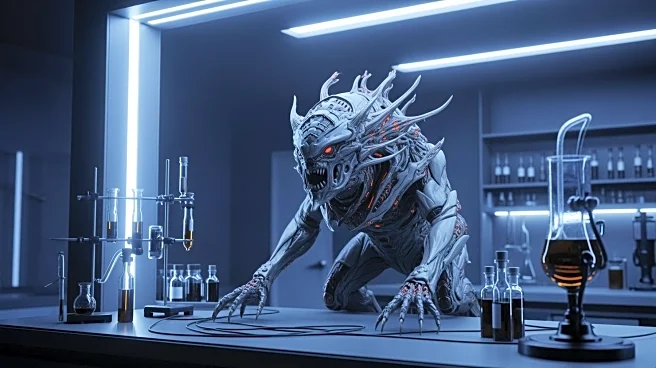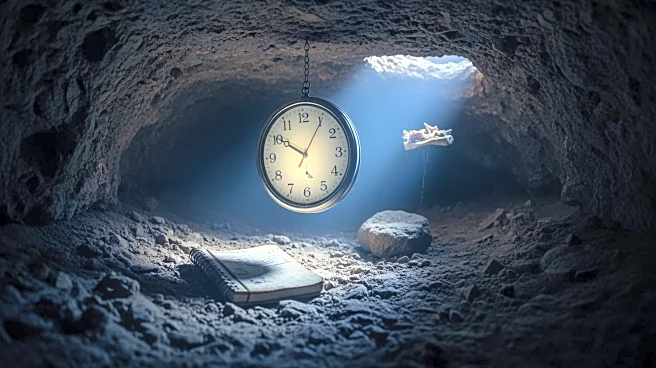What's Happening?
Guillermo del Toro's upcoming Frankenstein film, set to be released on Netflix, has cast Jacob Elordi as 'The Creature.' The film reimagines the classic monster with a modern twist, showcasing Elordi's striking features, including his cheekbones and long
hair. Oscar Isaac plays the role of Dr. Frankenstein, adding a unique interpretation to the story. The depiction of the Creature aligns with Mary Shelley's original novel, where Frankenstein's creation was intended to be beautiful but resulted in a catastrophic appearance. The film aims to blend classic horror elements with contemporary aesthetics, offering a fresh take on the iconic tale.
Why It's Important?
This adaptation of Frankenstein is significant as it brings a modern perspective to a classic story, potentially attracting a new audience to the genre. By casting popular actors like Jacob Elordi and Oscar Isaac, the film may appeal to younger viewers and fans of contemporary cinema. The reinterpretation of the Creature as both grotesque and attractive challenges traditional horror tropes, offering a nuanced portrayal that could influence future adaptations. This film also highlights the ongoing trend of reimagining classic literature for modern audiences, reflecting changes in cultural tastes and cinematic styles.
What's Next?
The release of Guillermo del Toro's Frankenstein on Netflix is anticipated to generate discussions about the adaptation's approach to classic horror. Critics and audiences will likely analyze the film's visual style and narrative choices, comparing them to previous versions. The film's success could lead to more reimagined adaptations of classic literature, influencing the direction of horror and fantasy genres. Additionally, the performances of Elordi and Isaac may be scrutinized, potentially impacting their future roles in similar projects.
Beyond the Headlines
The film's portrayal of Frankenstein's Creature as attractive yet monstrous raises questions about societal perceptions of beauty and monstrosity. This duality may prompt discussions on the ethical implications of creating life and the consequences of playing God, themes central to Shelley's original work. The adaptation could also spark debates on the representation of classic characters in modern media, exploring how cultural shifts influence storytelling.















